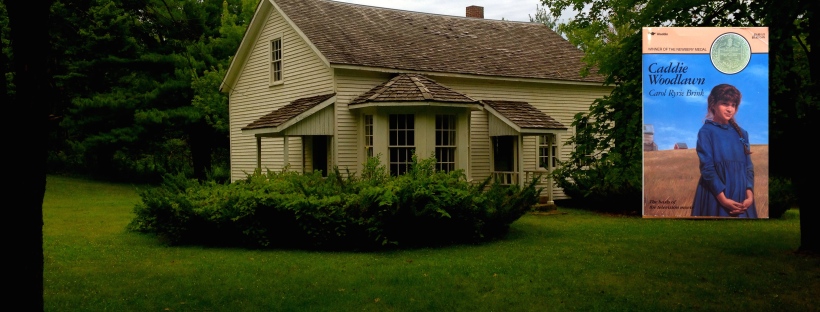Lived by a grandmother and passed down over the years, it’s a story that beats with real life. It’s the story of a redheaded, spirited girl growing up in 1860s Wisconsin where she and her family work and play together and learn what is important to them. It’s the story of Caddie Woodlawn.
This story came to life for me via the television screen and later through the pages of the Newbery-Award-winning book by Carol Ryrie Brink. The two are different in some big ways. Overall, I have to say that although the film captured my imagination and I absolutely loved the costumes, the book is, by and large, better, both worldview-wise and for learning about life in 1860s Wisconsin. But, of course, you could check out both versions for yourself!
Main Characters (in the book):
Caddie – A red-headed explorer who loves spending time with her brothers and learns many lessons.
Tom – Caddie’s older brother, a kind heart
Warren – Caddie’s younger brother, a jolly soul
Hetty – one of Caddie’s sisters, a chatterbox reporter
Mr. Woodlawn – Caddie’s father, a hard-working Brit who loves America
Mrs. Woodlawn – Caddie’s mother, a Bostonian lady who occasionally misses city life but loves her husband more
Annabelle Gray – the Woodlawns’ Bostonian cousin
While the book is full of exciting escapades like a prairie fire and Caddie’s race to protect the Native Americans, one quiet scene stood out to me. It seeks to answer a question every girl (or parent of a girl) faces at some point: What is womanhood all about and is it something a young girl could be excited to claim?
After a particularly miserable experience, Caddie and her father talk. Within that conversation, Mr. Woodlawn shares with his daughter what he thinks womanhood is:
“It takes nerve and courage and patience, but good women have those things. They have them just as much as the men who build bridges…A woman’s work is something fine and noble to grow up to, and it is just as important as a man’s. But no man could ever do it so well…I want you to be a woman with a wise and understanding heart, healthy in body and honest in mind. Do you think you would like to be growing into that woman now?” (pg. 244-245) 1
How does Caddie answer? How would you answer? Whether we are girls or we are raising girls, I think we could agree that being “a woman with a wise and understanding heart, healthy in body and honest in mind” who also has “nerve and courage and patience” is a worthy goal.
After you’ve read the book and/or watched the movie, perhaps you’ll be a fan of Caddie Woodlawn and her conviction-driven spunk. Do you know you can still visit her home in Wisconsin? Check out the Dunn County Historical Society website. All you will find in the park now is the log cabin and the small white house (pictured above), but, as another redheaded heroine of children’s literature says, there’s plenty of “scope for the imagination” in that.
[1] Carol Ryrie Brink, Caddie Woodlawn (New York: Aladdin Paperbacks, 1990), 244-245.









